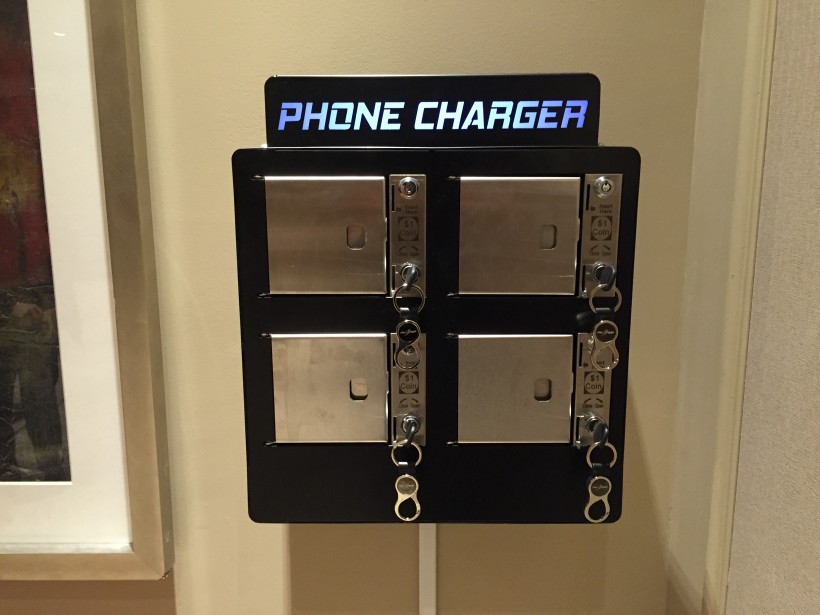Pascal deVillers regards the Free2Charge phone-charging stations as a “modern payphone.”
The payphone should have gone the way of the buggy whip, given that most of us carry cellphones. But the batteries tend to go dead in the middle of the day, and finding a place to charge them can be inconvenient, to say the least.
The Halifax company was created to address that problem. Founded by deVillers, Ben Lynds and Ken Leccese, it designs, manufactures and distributes recharging stations that you can use for a buck in public places. Some even refund your loonie.
“Everyone’s phones can die when they’re in public places,” said deVillers in an interview. “A lot of places are getting people asking, ‘Is there anywhere where I can recharge my phone?’ We address that pain.”
DeVillers was standing by his installation in the Student Union Building pub at St. Mary’s University, where he’s a part-time student. The Free2Charge station looks like a series of lockers, except each cubbyhole has three leads, one of which can plug into almost any smartphone. Users can pay a dollar, plug in their phones, lock the doors and know the phones are secure until they return.
The three entrepreneurs realized almost two years ago that smartphone batteries run out of juice quickly because they operate on 4G networks, run a few apps and face a lot of demands. A public place like a pub or hospital can cater to today’s market by offering a place where people can charge their phones without worrying about them being taken.
The founders originally designed and manufactured large standup facilities and installed their first one at Casino Nova Scotia in Halifax last May. They then designed small units that bolt onto a wall, and they’re proving popular with pubs.
So far, Free2Charge has installed three large units and seven small ones. The company either sells the machines to an establishment or installs them and collects revenue from the locker rentals.
Though battery technology is improving, deVillers expects that to help rather than hinder the Free2Charge business. New batteries lose energy just as quickly as old models, they just recharge more quickly. That means phones will recharge more quickly at the stations.
The founders have raised a bit of money from friends and family but largely financed their growth through debt and non-dilutive funding from such organizations as CBDC, Futurpreneur and the Centre for Entrepreneurship Education and Development.
They have plans to keep that growth going. In the long term, they want to research new products and designs, such as bus seats fitted with cellphone rechargers. In the meantime, they want more sales and are beginning to assemble a network for distributors across the country. They soon hope to be putting out as many units each month as they’ve produced in total so far.
“Our goals moving forward are to produce five to 10 a month, at least for the first year,” said deVillers.
Disclaimer: Entrevestor receives financial support from government agencies that support startup companies in Atlantic Canada. The sponsoring agencies play no role in determining which companies and individuals are featured in this column, nor do they review columns before they are published.










